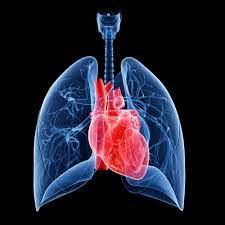Researchers at the University of Virginia School of Medicine have made a significant breakthrough in improving the survival rates of lung transplant patients. Lung transplants are often the only treatment option for patients with advanced or end-stage respiratory diseases. While patient survival rates have improved in recent years, they still lag behind those for other organ transplant patients. This has prompted doctors and researchers to search for ways to enhance the transplant process and minimize post-transplant complications.
Led by Swapnil K. Sonkusare of UVA’s Department of Molecular Physiology and Biological Physics, the research team identified cellular changes within the lung after a transplant that contribute to an ischemia-reperfusion injury. This injury occurs when blood supply returns to tissue after a period without oxygen, leading to organ rejection and death.
By targeting the underlying biological processes, doctors may be able to prevent ischemia-reperfusion injuries. The team’s findings were published in the journal Science Signaling.
Dr. Sonkusare, of UVA’s Robert M. Berne Cardiovascular Research Center, stated that the collaborative studies with Dr. Victor Laubach from UVA’s Department of Surgery revealed a new mechanism for lung ischemia-reperfusion injury. This mechanism could be harnessed to improve the clinical success of lung transplantation.
Ischemia-reperfusion injury is one of the leading causes of both primary graft dysfunction and chronic allograft dysfunction. The former is the primary cause of death within 30 days of a lung transplant, while the latter is the leading cause of death a year or more after transplantation. According to the National Institutes of Health, approximately 50% of lung transplant recipients experience chronic allograft dysfunction within five years of the procedure.
While some degree of ischemia-reperfusion injury is inevitable in organ transplant patients, the trauma resulting from the disconnection and reconnection to a new blood supply can lead to harmful inflammation, leaky blood vessels, damage to oxygen-exchange sacs, and other complications.
Although ischemia-reperfusion injury has been previously acknowledged, identifying its underlying causes has been challenging. However, Sonkusare’s latest work sheds light on a specific pathway of biological processes triggered by ischemia-reperfusion, which occurs in endothelial cells lining the lung’s blood vessels and results in immune cell activation and lung injury.
The research team successfully prevented inflammation and lung damage in lab mice by blocking key steps in this pathway, suggesting a promising approach for preventing similar problems in human transplant recipients. Further research is needed to validate these findings.
Sonkusare stated, “Our collaborative research with Dr. Laubach has revealed the cellular mechanisms for lung ischemia-reperfusion injury. We are currently testing the effectiveness of drug molecules that block these mechanisms in various models of lung injury after transplantation, with the ultimate goal of improving the success rate of lung transplantation.”
The research team consisted of Maniselvan Kuppusamy, Huy Q. Ta, Hannah N. Davenport, Abhishek Bazaz, Astha Kulshrestha, Zdravka Daneva, Yen-Lin Chen, Philip W. Carrott, Laubach, and Sonkusare.
*Note:
1. Source: Coherent Market Insights, Public sources, Desk research
2. We have leveraged AI tools to mine information and compile it



